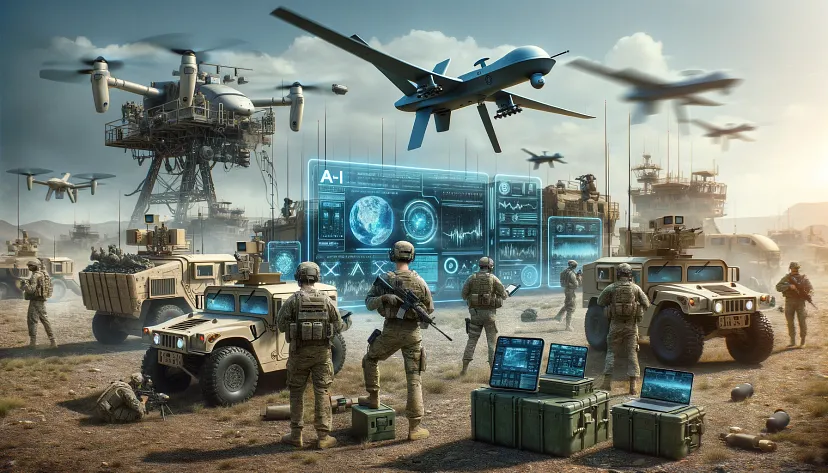In the evolving landscape of modern warfare, artificial intelligence (AI) emerges as a double-edged sword, offering both groundbreaking advancements and profound ethical dilemmas. As nations integrate AI into their military arsenals, the line between technological triumph and ethical transgression becomes increasingly blurred. This article delves into the heart of this conundrum, exploring the ramifications of AI-driven warfare and the moral quandaries it presents.
The Dawn of AI in Military Operations
The utilization of AI in military contexts is not new, but its capabilities have seen exponential growth. From autonomous drones and robotic soldiers to cyber defence systems and predictive analytics for battle outcomes, AI’s role in warfare is both multifaceted and profound. However, as these technologies advance, so too does the complexity of the ethical considerations they invoke.
Autonomy vs. Accountability
One of the most contentious issues is the degree of autonomy that AI systems should possess in making lethal decisions. The prospect of fully autonomous weapons capable of identifying and engaging targets without human intervention raises critical questions about accountability. Who bears the moral and legal responsibility for a machine’s actions? Delegating life-and-death decisions to algorithms strips away a layer of human judgment and moral discernment, potentially leading to unintended consequences.
The Risk of Dehumanization
AI-driven warfare risks dehumanizing the very nature of combat. Machines lack empathy and the capacity to understand the value of human life, leading to concerns over the ethical implications of their use in situations where civilian casualties are a possibility. The detachment provided by remote warfare can desensitize operators to the human cost of conflict, further complicating the ethical landscape.
The Proliferation Dilemma
The rapid development and deployment of AI technologies in military contexts also pose a proliferation dilemma. As more nations acquire advanced AI capabilities, the threshold for engaging in conflict may lower, potentially leading to an increase in warfare. Furthermore, the risk of these technologies falling into the hands of non-state actors or being used for terrorist purposes adds an additional layer of ethical complexity.
The Promise of Precision and the Peril of Error
Proponents of AI in warfare argue that it can increase precision in military operations, reducing collateral damage and civilian casualties. However, AI systems are not infallible; they can be misled by flawed data, biased algorithms, or technical glitches. The consequences of such errors in a military context could be catastrophic, underscoring the need for stringent oversight and ethical guidelines.
The Call for International Regulation
The ethical dilemmas posed by AI in warfare have led to calls for international regulation. There is a growing consensus among scholars, policymakers, and military leaders that a framework for the responsible use of AI in military operations is essential. Such a framework would need to address issues of autonomy, accountability, transparency, and compliance with international humanitarian law.
The Way Forward: Ethical Principles and Oversight
Navigating the ethical minefield of AI-driven warfare requires a multifaceted approach. Establishing ethical principles for the development and use of AI in military contexts is crucial. These principles should prioritize human oversight, accountability, and adherence to international humanitarian standards. Furthermore, robust oversight mechanisms, both national and international, are necessary to monitor compliance and address ethical violations.
Conclusion
The integration of AI into warfare presents a paradox of progress and peril. While offering the potential for more precise and efficient military operations, it also poses significant ethical challenges that demand careful consideration and action. As technology continues to evolve, the imperative to develop and enforce ethical guidelines becomes ever more critical. Only through concerted effort can we hope to harness the benefits of AI in warfare while mitigating its moral and ethical risks.

